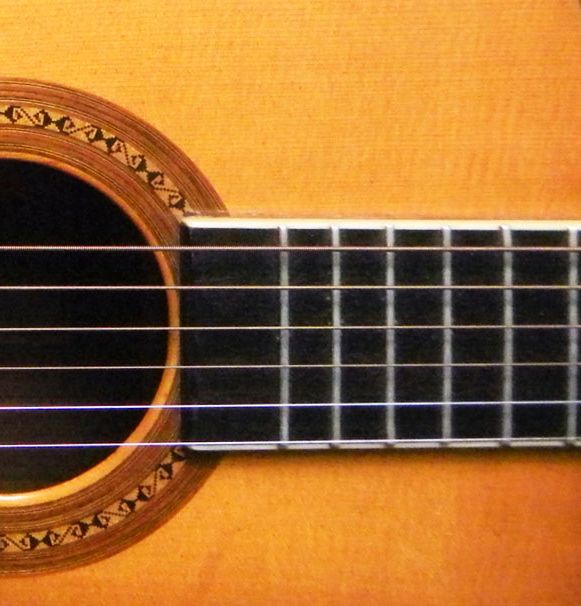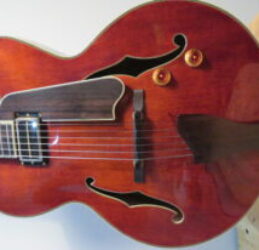Mariano Passalaqua was a coal miner and steel mill worker who decided his son would have a better way of earning a living than his own. He gave young Joseph Anthony (later known as Joe Pass) a flat-top Harmony steel-string on his 9th birthday and imposed hours of daily practice which involved playing along whatever songs were frequently heard on the radio. Three years later, Joe got a Martin fitted with a DeArmond pickup and began to look forward to playing professionally. He got to be so good as to enter Tony Pastor’s band at 14, improvising on standards such as Honeysuckle Rose and I Got Rhythm, while applying ideas he took from jazz-guitar influencers Charlie Christian, Django Reinhardt and Wes Montgomery, or from saxophone genius Charlie Parker and pianist virtuoso Art Tatum.
At 20, he moved to New York where he got to jam with some of his idols, but also went through a 12-year period of drug addiction and jail time. Turning a new leaf in 1960, he entered a rehab center in California and recorded Sounds of Synanon, now a collectors’ item, with fellow patients. By 1963, his reputation grew as a top jazz guitarist and he started to record for Pacific, even adapting to the rock n’ roll wave by offering his take on some of the Rolling Stones’ hits. From then on, Pass participated in every kind of music group, from duos to full orchestra, but his solo efforts or at-the-top meetings were best noticed, mostly when he started recording for Norman Granz’s Pablo label in 1972 (four-volume Virtuoso, from 1972 to 1977, The Trio, with Oscar Peterson and Neils-Hegging Orsted Pedersen, Take Love Easy, Live At Carnegie Hall, Portraits Of Duke Ellington in 1974, The Giants in 1974, with Oscar Peterson and Ray Brown, The Big 3 in 1975, with Milt Jackson and Ray Brown, Fitzgerald and Pass…Again in1976, or Speak Love, also with Ella Fitzgerald in 1983.
At first, his technique mostly used alternate down and upstrokes, going on as the years went by to a hybrid pick-and-fingers combination, and eventually to a totally fingerstyle approach.
Well established as one of the jazz greats, Pass toured the world and began offering other guitarists insights into the inner workings of his art. He wrote books to describe his style, approach, and technique in depth: Joe Pass Guitar Style, Joe Pass Guitar Solos, Joe Pass Guitar Chords, and Joe Pass Chord Solos.


With thanks! Valuable information!